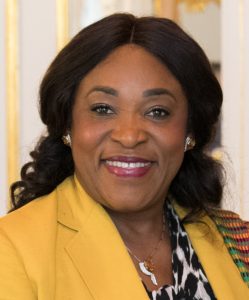Trump tells Putin to end ‘ridiculous war’ in Ukraine or face new sanctions
4 min readDonald Trump has warned Russia that if President Vladimir Putin does not end the war in Ukraine, he will impose heavy tariffs and additional sanctions. Trump took to his social media platform, Truth Social, to assert that pushing for a resolution to the conflict would be a “very big favor” to Russia and its president. He previously claimed that he could negotiate a settlement to Russia’s invasion of Ukraine, which began in February 2022, in just one day.
In response, the Kremlin indicated that it remains “ready for an equal, mutually respectful dialogue” but noted that it had not yet received any signals from the West. Kremlin spokesperson Dmitry Peskov commented that Russia saw nothing new in Trump’s threat of further sanctions, adding that the former president had previously favored such methods during his first term in office.
Putin has consistently expressed his willingness to negotiate an end to the war, which originally began in 2014, but under the condition that Ukraine accepts Russia’s territorial gains—currently amounting to about 20% of Ukrainian land. He has also insisted that Ukraine should not be allowed to join NATO. Kyiv, however, has made it clear that it will not cede any of its territory, though President Volodymyr Zelensky has suggested that some temporarily occupied land might need to be conceded in a peace agreement.
Trump, speaking at a press conference, said he would soon be in talks with Putin and that it was “likely” he would apply more sanctions if the Russian president failed to negotiate. The next day, on Truth Social, he went further, stating, “Settle now, and STOP this ridiculous War! IT’S ONLY GOING TO GET WORSE.” Trump warned that if no deal is reached soon, he would impose high tariffs and sanctions on all Russian exports to the U.S. and other participating countries.
Trump also emphasized that the war could have been avoided if he were president, adding that it would be better to “make a deal” the “easy way” rather than the “hard way.” His comments reflect his ongoing belief that a peaceful resolution is possible through direct negotiation with Putin.
Trump’s former special representative for Ukraine, Kurt Volker, discussed the potential consequences of Trump’s sanctions threat. He suggested that this would send a clear message to Putin that the situation would worsen unless he agrees to a ceasefire. Volker added that pressure should be applied to incentivize Russia to come to the negotiating table.
Ukrainian President Zelensky, speaking at the World Economic Forum, reiterated that at least 200,000 peacekeepers would be needed in Ukraine as part of any peace agreement. Zelensky also stressed that the peacekeeping force would have to include U.S. troops, as no European nations would be willing to act without U.S. involvement.

While some Ukrainian leaders might appreciate Trump’s tough rhetoric—given that they believe Putin responds only to strength—the response from Kyiv suggests that what Ukraine truly wants are concrete actions, not just words. Trump has not provided specifics on which sanctions he would impose or when, although Russian exports to the U.S. have already dwindled significantly since 2022 due to existing restrictions.
Volker noted that additional sanctions could inflict “substantial” damage on the Russian economy, especially if Trump strengthens the current measures that were imposed by his successor, Joe Biden. Many Russians still feel the pressure from these existing sanctions, but Trump’s threat of further action signals that more economic penalties could be on the way.
In Moscow, some voices are indicating that the Kremlin may be preparing Russians for a less ambitious end to the war. TV editor Margarita Simonyan, a staunch supporter of Putin, has suggested that “realistic” conditions for ending the conflict might include halting the fighting along the current frontlines, with Ukraine retaining control over regions like Zaporizhzhia, which Russia illegally annexed in 2022.
Despite hardline opposition from Russian nationalists, Volker expressed doubts about a potential peace agreement, emphasizing that the primary U.S. objective should be to halt the fighting and deter further Russian aggression.
Trump’s rhetoric has shifted somewhat. He previously expressed understanding of Russia’s concerns about NATO expansion but now seems to adopt a tougher stance on Russia. While his position matters, many in Ukraine remain wary, given the long-standing war and a history of failed peace negotiations. Ultimately, Ukrainians appear less hopeful about a breakthrough, and many are focused on actions, not just political statements.





